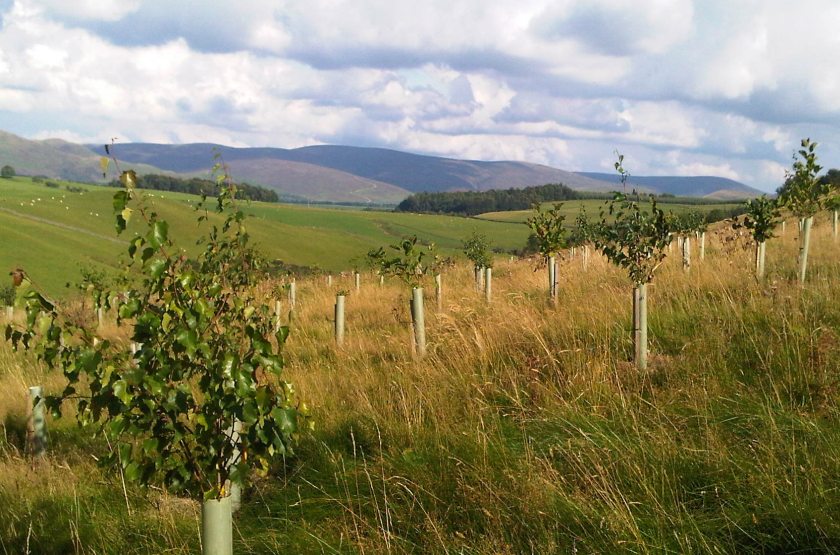
A charity's £2 million woodland scheme has expanded to help Scottish farmers and other land managers create native woodlands.
Future Woodlands Scotland has unveiled the next phase of its ‘Future Woodlands Fund’ pilot scheme to make it easier for farmers Scotland to plant trees.
New to the scheme are three options – upfront area payments for small woods, carbon ownership and ghost woodlands.
The scheme’s original annual payments option has been increased to £3,500 per hectare over 20 years, to provide extra incentive for woodland creation.
Any farmer and land manager in Scotland can apply to the charity's fund provided their proposed project is between 3 and 100 hectares and meets the criteria.
Future Woodlands Scotland, a Scottish charity working to create native woodlands, aims to establish one million trees by November 2023, with the potential to lock up 235,000 tonnes of CO2 by 2080.
Tim Hall, chair of Future Woodlands Scotland, said that interest in native woodland regeneration was increasing, but many farmers were still worried about costs.
"Providing them with a range of options will mean they can choose what’s best for their business," he explained.
"This will be good for both farming and wildlife, while helping Scotland meet its biodiversity and climate commitments."
Developed following feedback, the charity's new range of options addresses demand for differing levels of support and retaining carbon units arising from the woodlands.
Through the fund, farmers and land managers will now be able to apply for up to £3,500 per hectare spread over 20 years if they choose the annual payment option.
Future Woodlands Scotland has introduced an upfront area payment option for smaller woodlands to help ease cashflow at implementation.
A new, carbon unit ownership option also gives farmers the option to keep any carbon units arising from their woodland as an investment or to offset their own land-based emissions.
Another option is to restore ‘ghost’ or derelict native woodlands with high ecological value. Ghost woodlands are relics of old or ancient woodlands, where less than 20% of the canopy cover remains.
The Future Woodlands Fund has been made possible by £2 million of support from energy company, bp.
